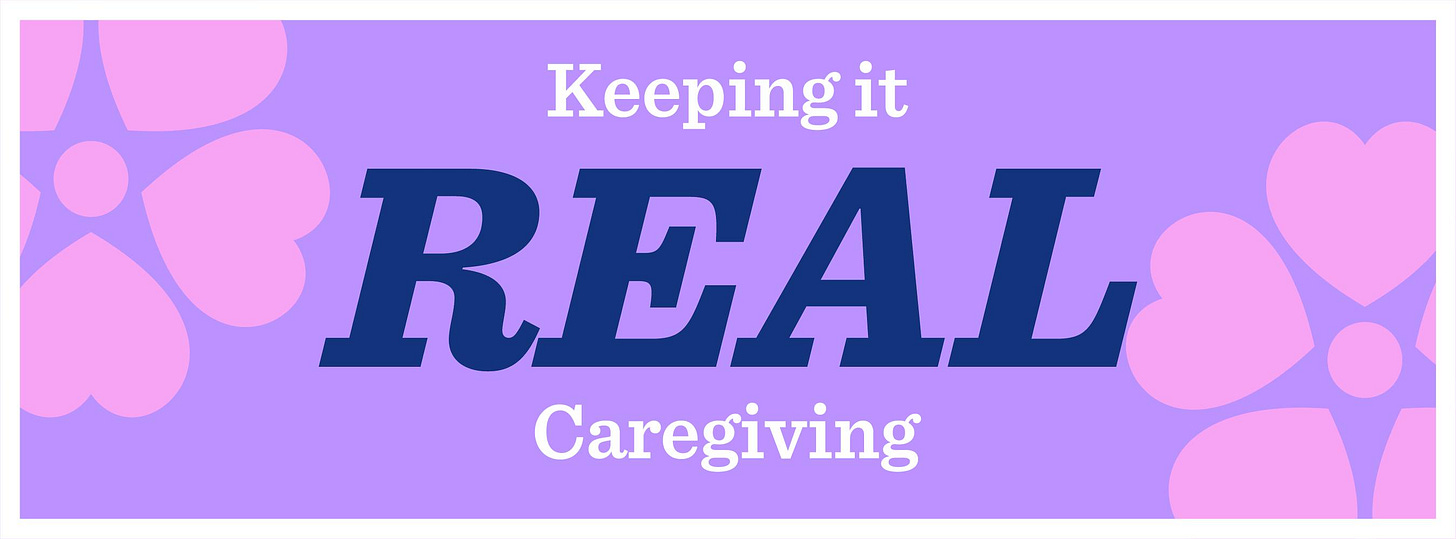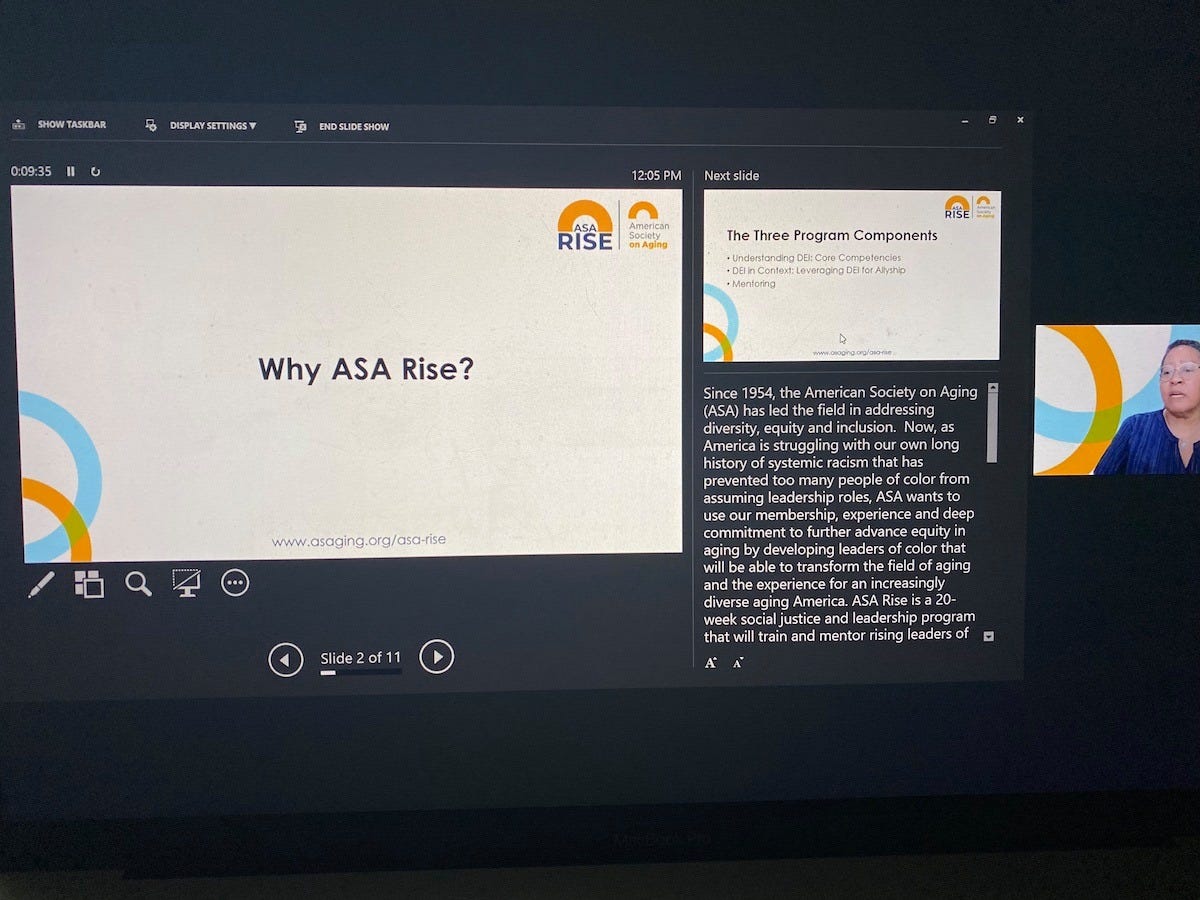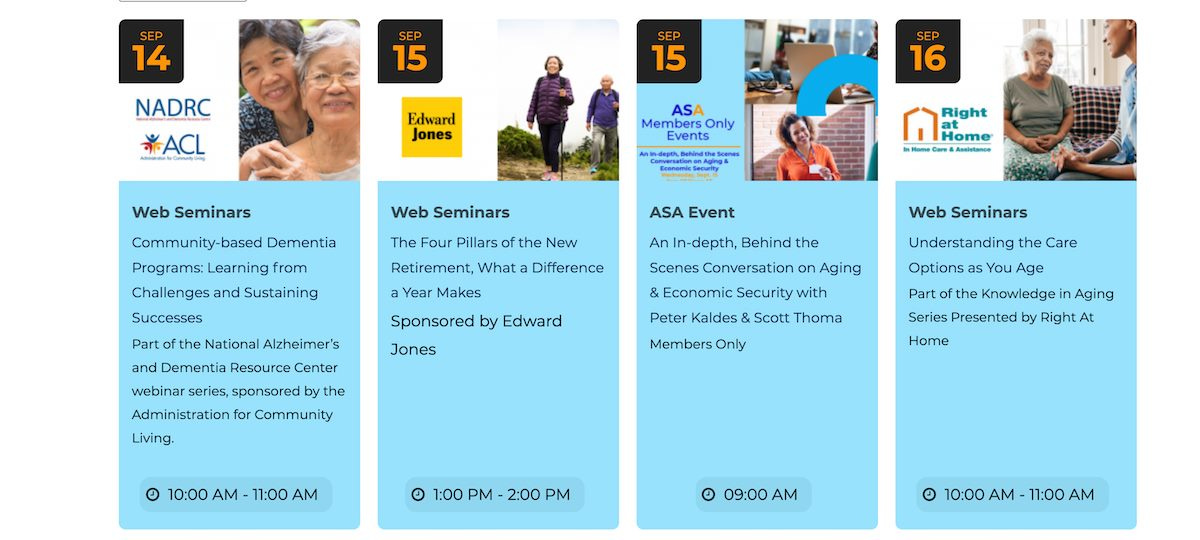
What is the first thing that comes to mind when you envision a paramedic or other first responder arriving to an emergency scene?
If you said something along the lines of an individual jumping into action to provide help and life-saving treatment for those in need, regardless of who that person is or what they look like, you are probably like many people.
Notice I did not say ‘most’ but rather, many. Why the difference? Because over the past several years I have become keenly aware that not everyone treats others with respect, dignity, equity and compassion. And sometimes that treatment (or lack thereof) is based on how someone looks.

Sadly, in many parts of our society various forms of discrimination are alive and well. Whether that be based on gender, race, color, sexual identity or yes… age. It is called AGEISM. It exists.
Don't freak out...the Keeping it REAL Caregiving newsletter is not a platform in which I’m going to often delve into the many hot-button social and political issues dividing so many Americans right now.
No…I’m not going there. But… when those issues creep into how we, as a society care for our elders; especially elders of color?? Then yes…sometimes I WILL go there and I will drag you with me.

Be sure to SUBSCRIBE to the Keeping it REAL Caregiving newsletter to stay in the mix…
However when the topics are tough, KIRC strives to offer information, resources and tools to take action. Let’s face it…we could all sit around complaining about situations, but that will not change anything.
Action & opportunity
This week I took part in an informational online session hosted by the American Society on Aging.

Courtesy: ASA Screen Grab
What is ASA? Think of it as a portal to find practical information about what it means to age, to adapt and to tap into valuable resources, including articles, podcasts, webinars and more.
In fact, this coming week, there are several interesting and educational online sessions you can sign up for.

Courtesy: ASA Screen Shot
If you attend any of these, I would love to hear from you about the experience and what you learned. Drop me a message in the conversation box or email me at info@juliayarboughmediagroup.com.
The organization has recently put out a call for those interested in learning more about the very real intersection of aging and social justice, to take part in an immersive educational program.
It is called ASA Rise and it is designed to begin preparing the next generation of qualified and well-versed as well as DIVERSE leaders in the field of aging.
Those chosen will spend 20 weeks moving through a series of classes designed to prepare them for important work in the field of aging.
Why did this program catch my eye? Well, after living in a somewhat rural community in Northern California where the population of African Americans is roughly 2%, I see and experience gaps of understanding when it comes to providing care for our elders, especially those of color. To be honest, it never entered my mind prior to living in a region with such little diversity.
Case in point: during our search for a primary care doctor for my mother I found just ONE African American doctor. He remained in town less than a year. He expressed to me on several occasions that many Anglo patients the local hospital referred to him did not want his services.

Courtesy: Adobe Stock
That feeling works both ways but many times, an individual of color may not have a choice - depending on where one lives.
It may seem like a little thing but I was hopeful to have a physician who just might have a more personal understanding of some of the unique medical challenges faced by African Americans (higher rates of Diabetes and higher risk of Alzheimer’s disease) to name just a few.
Then when our family made the very tough decision to seek out a senior care facility for my mother, one of the questions I asked administrators: “Are any of your staff members or clients African American?”
At several locations the admins seemed taken aback that I would even ask. The question was not to imply care would somehow be less-than. I asked because I was taking into consideration there might be an increased comfort level for my mother if she saw other residents or care staff of color. (Thankfully, it all worked out and there were no issues involving race that came up).
How much might increased awareness surrounding these issues improve care for our elders? I think diversity, equity and inclusion and proper training is important so that those working in these fields represent what our population looks like. Wouldn’t you agree?
Next steps
Disclaimer: I am NOT working for ASA. I simply think this would be an amazing opportunity for the right person.
So here’s what I learned from the online session:
ASA Rise is a 20-week course that will cover issues of social justice and implicit bias.
Courses will include guidance on developing effective advocacy efforts and learning what it means to be a leader.
ASA leaders shared there are five areas which will be touched on and those include: Ageism and Culture, Economic Security, Equity and Justice, Heath & Well-Being and Social Innovation.
The program starts in January, 2022. If you are interested, the application period is NOW OPEN and runs through October 15, 2021.
Do you think I can add any more projects to my plate? I’m not sure but I think for this level of learning and opportunity to make a difference in the lives of others… I’m going to have to try!
Until next time ~ Ciao!




